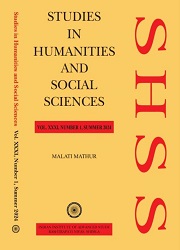Is Vedic Medicine Religio-magical? (Analysis of a narrative set by historians)
Keywords:
Ayurveda, Tridosha, Triguna, Rig Veda, Vedic MedicinesAbstract
Medicine is as old as life itself. The fundamental requirement for the survival of the species is that simultaneously with the appearance of disease, all creatures must have also evolved the system of medicine to combat the disease. The remedies were available in the form of plants and herbs, and by instinct the living beings could identify such life saving vegetation. The man with his higher intelligence must necessarily have extended the scope of this search for remedies. So if we recount the myth of a Garden of Eden which man had to abandon when he fell from grace, “the thousand ills that flesh is heir to” must have afflicted man from his birth and the dawn of medicine must have synchronized with the dawn of disease. Every human society must have developed a basic system of medicine, whether based on spells, incantations; magic or rituals, and materia- medica which to us in this scientific age may appear meaningless. The progress from this primitive stage to an established system of medicine has not been on the same lines everywhere. The civilization and the environment has a vital role in the development of a system of medicine and it depends on various factors; its form and content are decided by the environment in which it is born.
In my present paper, I have tried to analyze the comments of historians on the Hindu tradition of Medicine or more appropriately Vedic tradition of medicine. Most historians have advanced a few arguments while writing on the Vedic tradition of medicine. The first argument is that Buddha’s philosophy of the middle path and Buddhist medicine influenced Ayurveda to develop the empirical and scientific approach.
Second argument is that Vedic medicine was purely religiomagical whereas in other ancient civilisations such as Mesopotamian, Egyptian and the West, traditions of medicine were empirical and scientific. Third argument is that the Vedic tradition of medicine was separate from the Ayurvedic tradition and both are independent and different from each other.
In view of the above arguments, first I would like to briefly introduce the Vedic tradition of medicine including Ayurveda, and afterward take up the arguments of historians in the light of the available facts and a comparative analysis of other ancient traditions of medicine.


